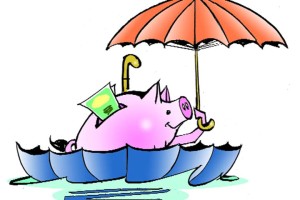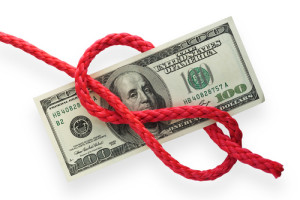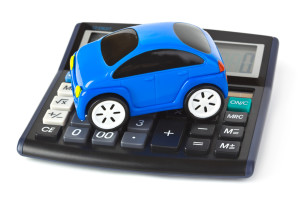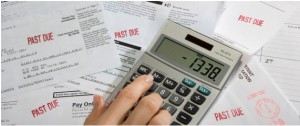March 1, 2016
 Your decisions about what college or university to attend will be a decision that affects the rest of your life—literally.
Your decisions about what college or university to attend will be a decision that affects the rest of your life—literally.
From the close knit, lifelong friendships you’ll develop as a result of living with people to the content and information you’ll learn in your courses, your choice of college will carry with you until your last breath. The choice will shape your career and aide in transforming you into a responsible adult. You need not take it lightly.
A lot of times, when young adults are preparing for high stake tests, planning for graduation and exploring their college options, they get held up deciding whether or not to go to school close to home or to travel far away. There are pluses and minuses on both sides of the decision.
True cost and saving
The biggest plus of staying home and attending college is cost. You’ll save a lot of money if you don’t go away. The cost of room and board can be forgone when you live at home and eat your parents’ food. It may not seem like a big deal when you’re thinking about leaving, but student loan debt, like your choice of college, will also play a part of your life for a long time—not quite until your last breath, but it’ll haunt you until close to that day.
Aside from cost, there’s a lot more that weighs into deciding to travel far away or stay close to home. If you’re considering leaving the state in which you reside, your tuition will be higher than it is for in state residents. Couple that with the travel costs when you want to return home, and you’re racking up bills that will be a part or your budget for a lofty amount of time. That’s when priceline and other online coupon websites come in handy!
In addition to costs, there’ll be periods of time when you long for home, and home will be out of reach. You’ll stumble across nostalgic moments when you want to see an old high school friend, and planning a weekend together will be logistically impossible. You may get sick and yearn for the way mom coddles you with soup and ginger ale. That will not be an option if you’re too far from home.
The price for adventure
Conversely, traveling far away for college brings with it much adventure. You’ll be completely independent when you’re far from home. You’ll be responsible for every aspect of your life—when you eat, when you sleep, where you go out. Traveling away to school strengthens the responsibility skills you need to foster that independence.
Adventure lies around every corner when you travel away to school as well. New and exciting people, places, and things will fill your free time. These experiences will also go a long way in helping you develop into a strong, independent adult.
Conclusion
College is meant to be an experience. You have so many options to think about when you’re choosing a school. You can go away, you can stay home, or you can venture close enough that you can still come home affordably and comfortably.
Nevertheless, the decisions you make regarding what school to attend will be one that will be part of you for the rest of your life. Make sure you take your time and weigh your options so that you choose the best school for you!
Tags:
budgeting,
Costing,
expenses,
financial planning,
loans,
money,
savings
January 25, 2016
 What is life insurance?
What is life insurance?
One of the key concepts of life insurance is that it can pay any dependents you have a cash lump sum or regular payouts upon your death. It has been designed as a way of providing you with a level of reassurance that those who are dependent on you are looked after should you no longer be around.
Of course, the amount of money that will be paid out depends on the amount of cover that you purchase. You may also make decisions as to how it will be paid out and whether the money is earmarked to cover particular payments such as rent or a mortgage.
There are a couple of main types:
– The term life insurance policy runs over a fixed period, and will only pay out should you die within that period. No lump sum is redeemable at the conclusion of a term policy.
– The whole-of-life policy pays out irrespective of when you die.
What is not covered?
Life insurance does not cover disability or illness. The majority of policies have exclusions. As an example, if your death is cause by alcohol or drug abuse, there is no cover.
Should you have a particularly serious health problem when the cover is taken out, this may also be excluded from payout.
Are you in need of it?
If you have dependents – a partner who is dependent on your income, school aged children, et cetera – if you die, a life insurance policy may provide for them.
If you are unable to rely on governmental help for your family – perhaps the amount is too small – then life insurance becomes a necessity.
Who does not need it?
Your partner may earn enough income for your family to be comfortable, or you may be single, in which case, life insurance may not be required.
How much does life insurance cost?
Life insurance can be good value. Depending on your circumstances, a few pence each day can be plenty enough to provide your family with financial protection. In fact, on average, 100k life cover for a period of 10 years, for those who do not smoke and are aged 54 years, works out at less than £1 a day.
Nevertheless, monthly payments, which are also referred to as premiums, can and do vary. Thus, it’s wise policy to shop around and to find out precisely what will be covered given the amount that you are paying.
There are a number of factors that impact the amount you will pay for life insurance. That includes the policy length, the amount you wish to cover, your current health status, your current age, whether you smoke, and your current lifestyle.
As an example, a younger person who is less likely to die on account of a medical condition will enjoy a cheaper life insurance policy than otherwise.
Do you already have life insurance?
You may have an employee package which includes something called “death in service” benefits. In which case, this covers you for a certain multiple of your income and as such, you may not be in need of any life insurance.
You do need assess whether this policy will provide enough cover in the event of your death or whether you should opt for additional cover.
Do keep in mind that if you no longer work for this employer, you will lose your coverage under this policy.
Consider other forms of insurance
Life insurance will cover a worst-case scenario, though you should also consider other matters such as bill payments and your mortgage if you are unable to work due to injury or illness.
You may benefit from income protection insurance. Income protection insurance provides for regular payments if you are unable to work on account of injury or illness.
Perhaps instead you need critical illness insurance. Critical illness insurance provides you with a lump sum which is tax-free should you be diagnosed with a serious illness that is under the provision of your policy.
Think also about payment protection insurance, which is a policy that will help you to maintain any regular payments if you are unable to work – maybe because you are ill, you’ve suffered an accident, or you have been made redundant.
You might be in need of short term protection insurance. This is a solution which provides short term insurance cover that can help you to pay for any essential outgoings if you are unable to work for any reason.
Tags:
budgeting,
Claims,
Coverage,
economy,
insurance,
investments,
life insurance,
money,
Returns
December 15, 2015
 The statisticians may tell us that the recession has been over for three or four years and that incomes have returned to pre-crisis levels. But for millions of people in the UK, the reality is that times are still hard and money short.
The statisticians may tell us that the recession has been over for three or four years and that incomes have returned to pre-crisis levels. But for millions of people in the UK, the reality is that times are still hard and money short.
The good news, however, is that while you may have had a difficult year financially during 2015, there is no reason why you can’t make a New Year’s resolution to get your finances back on track in 2016. The situation is rarely hopeless, particularly if you are in work or have some other regular income. Even if you have large unsecured debts, there is usually a way for you to start reducing them and increase your disposable income at the same time.
If you want to tackle your financial issues in the year ahead, then you’re going to need some discipline and some determination to change the way that you may have behaved over the last few years. Getting your finances back on track may not be easy but it is probably simpler than you think:
1. Stop beating yourself up
This is a prerequisite if you want to reduce your anxiety levels and make a start on tackling whatever financial problems you may currently be facing. It’s human nature to keep going over past mistakes and blaming oneself for silly decisions but what is done is done and now is the time to drop the blame and start concentrating on the future. Learn to accept what has happened and move on, concentrating instead on implementing positive steps to improve your financial outlook.
2. Make a financial inventory
Do you actually know how much you owe banks, mortgage companies and other financial organisations? It’s important to have a grasp of your total liabilities so that you can put in place long-term plans to repay this debt entirely. That means making an inventory of everything you owe – both secured and unsecured – as well as the remaining loan terms and the interest rates which you are being charged on each loan and credit card.
3. Prioritise credit with higher interest rates
If you’re going to make inroads into your debts in 2016 and relieve the pressure you’re under, then you should start increasing the amounts you repay on the mortgages, loans and credit cards that charge the higher amounts of interest. This is the only way that you’ll be able to increase the speed that you reduce your total amount of debts.
4. Make a list of everything you spend for a month
If you’ve got Excel or other spreadsheet software and know how to use it, then this is a brilliant tool for doing this important task. Make sure you list all of your income and all of your expenditures. Don’t be tempted to miss out things like coffees from the coffee shop or the odd treat – you need to be completely honest with yourself about where your money is going before you progress onto the next step.
5. Make a household budget
Once you’ve worked out everything you spend for a month, you’ll be in a good position to set a household budget. Using your spreadsheet program, list all outgoings (with the fixed ones at the top) and all of your income. Let the software work out totals (if you know how) and then calculate whether you should have money left over or if you are spending more than you earn. If it’s the latter, look at the non-essentials on your list and consider what to cut. Think about your food budget – could this be reduced either by using a cheaper supermarket or by cutting out some of the items which might be considered luxuries? The household budget will make it much easier to see where you can save money and divert that into reducing your household debt.
6. Consider consolidating debt
If the amount you’re paying in interest, fees and other charges is overwhelming you, you might want to make 2016 the year when you consolidate all those cards and other loans into a single, monthly repayments. Plenty of companies beyond the high street banks offer consolidation loans and the amount of interest you’ll pay may be surprisingly lower than you’re currently used to. The amounts on offer go all the way up to £25,000 for unsecured loans and even higher if you consider secured lending.
7. When you’ve paid off a card, close it
If you’ve got unused credit available, there is always going to be the temptation to start buying things that you probably can’t afford. The easiest way to stop yourself doing this is to close card accounts when you have paid off the outstanding balance. Always leave yourself one to cover financial emergencies but get rid of the rest and use the money you are saving to pay off further debt.
8. Debt repayment is a snowball – learn how to use it
When a snowball rolls downhill, it not only gathers speed but it grows larger and larger as it picks up more snow. Debt repayment is exactly the same if you are disciplined about it. When you start paying back debt, you reduce the amount of interest that you’re paying and so release money to pay off even more debt and so on. If you hit the loans and cards with the highest interest rates first, you’ll be tackling the biggest source of your financial worries and releasing more and more money to pay off other debts more quickly.
Article provided by Mike James, an independent content writer in the financial sector – working with a selection of companies including Solution Loans, a technology-led finance broker with many years experience – who were consulted over the information contained in this piece.
Tags:
budgeting,
Credit Card Debts,
Debt Problems,
Debts,
economy,
financial planning,
personal finance
November 12, 2015
 Buying a car is not a simple decision to make and you have probably spent quite a bit of time thinking about it. From choosing the type of car you want to thinking about how to finance it, you need to put a lot of serious thought into the decision you are making. Once you have settled on make of vehicle that you want, it is time to start thinking about how to pay for it. So which is the best financing option for you?
Buying a car is not a simple decision to make and you have probably spent quite a bit of time thinking about it. From choosing the type of car you want to thinking about how to finance it, you need to put a lot of serious thought into the decision you are making. Once you have settled on make of vehicle that you want, it is time to start thinking about how to pay for it. So which is the best financing option for you?
Buy in cash or savings?
Buying your car on your savings is the best option when interest rates are low on your savings account yet you have enough savings. It is much better than keeping the savings with a low interest rate and borrowing a personal loan at a higher interest rate to buy the car. You can also combine your savings with a personal loan that covers a partial cost of the vehicle.
It is advisable to only use your savings when you have enough to leave some for emergency costs after paying for the car. If you do not have enough savings to pay for the entire price, you can use it to give the biggest deposit possible and reduce the car loan repayment amount.
Personal Loans
Personal loans are the cheapest way to finance a vehicle if you have a great credit score. Personal loans are available from banks, building societies and other finance providers. Avoid securing personal loans against your home as you will be at risk of losing it if you do not make your payments on time. You can shop around for personal loans from the different institutions available. The only challenge with taking out personal loans is that it may take some time to receive the funds and it will affect your other borrowing options.
Hire purchase
This is a way of buying certified pre-owned cars through paying in installments. You need to put down a deposit and make the rest of the payments for the vehicle between 12-60 months. Hire purchase programs are arranged by the vehicle dealers and can be very competitive for brand new cars. You do not own the vehicle until you make your last payment.
Hire purchase is a great option for you if you are in a rush to purchase your vehicle and cannot wait for finance provider protocols. The deposit can be as low as 10% with flexible repayment terms and competitive interest rates. The only challenge with hire purchase is that it may turn out be more expensive for short-term agreements.
Personal contract plan
A personal contract plan is a special car financing option that is a variation of the hire purchase option but with lower monthly payments. This personal contract plan is where you agree to pay the difference between its sale price and price for resale back to the dealer based on a forecast of annual mileage. It is a short term plan usually with a maximum of 36 six months after which you can give back the vehicle to the dealer at no extra cost, trade in the vehicle for another one or pay the resale cost of the vehicle and keep it. This payment plan is great if you do not want to settle on one type of vehicle, it is also much cheaper with a choice of what to do at the end of the payment period.
Grace Malloy is a loan officer with a lending firm. You can read more about your car financing options at Ideal Auto USA.
Tags:
Auto Renting,
budgeting,
Car,
Car Finance,
investments,
loans,
savings
October 29, 2015
 Think short term loans are for financially irresponsible people? Not quite. When circumstances outside of your control drain your savings and leave you wondering how you’ll cover all of your expenses when pay day is another week away, short term loans can be the only way you keep your household budget out of the red.
Think short term loans are for financially irresponsible people? Not quite. When circumstances outside of your control drain your savings and leave you wondering how you’ll cover all of your expenses when pay day is another week away, short term loans can be the only way you keep your household budget out of the red.
There are plenty of reasons why you might need a short term loan. A sudden medical expense, vehicle repair, or utility bill could come at a time when a leaking bathroom pipe needs immediate repair. Bills and repairs compound until you owe more than you can afford. The reasons why aren’t important when you’re the one on the hook for these expenses. The anxiety caused by bills can be devastating, but the stress can be alleviated with the help of a direct online lender.
Part of this stress is finding a loan that will fit your time line. When your bills are due immediately, you can’t afford to wait for a lender to take days (or even weeks) to approve your loan. A direct online lender can provide quick and convenient loans when you need it most. By virtue of being an online lender, they can approve and facilitate your loan through their secure website. Everything is done virtually, and you can receive an electronic transfer into your account in as little as one business day. Imagine having the luxury of getting the loan you need in that short time frame. You don’t have to rely on a financial advisor’s schedule to speak about your loan options and or wait weeks to see the money you need.
Beyond expediency, you’ll find that direct online lenders differ in the types of loans they offer. Go online and read up on the terms, rates, and conditions that each state-licensed direct lender can offer you. Your research will no doubt bring you to discover how MoneyKey can help when the going gets tough. They don’t believe in providing the same loan to every one of their clients, regardless of financial standing or needs. They can issue lines of credit, installment loans with flexible payment options, and single-pay loans depending on your unique financial situation. Each loan is has its own advantages, so you should explore which one better fits your needs. Having the luxury of flexibility means you can shop for a loan with rates that you can reasonably manage, never having to settle for something beyond your means.
When you find a loan and lender that meets your standards, you’ve gotten to the easy part. All you have to do is fill out a convenient application form and wait to see if you qualify. Once you do, you’ll have the money you need to face the unexpected expenses that put a strain on your budget.
Tags:
budgeting,
Cash Flow,
Debts,
loans,
money,
personal finance,
savings
 Your decisions about what college or university to attend will be a decision that affects the rest of your life—literally.
Your decisions about what college or university to attend will be a decision that affects the rest of your life—literally.




Recent Comments